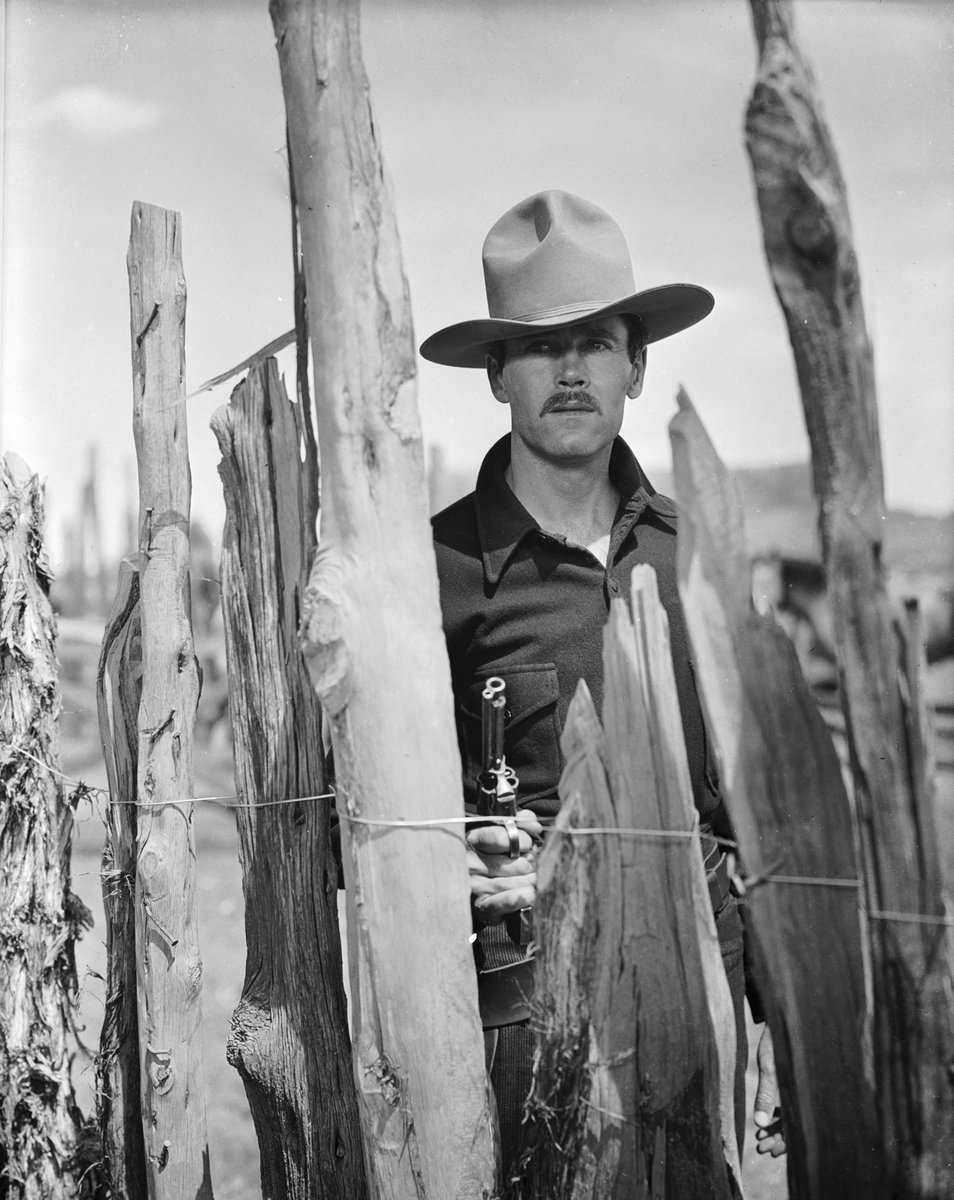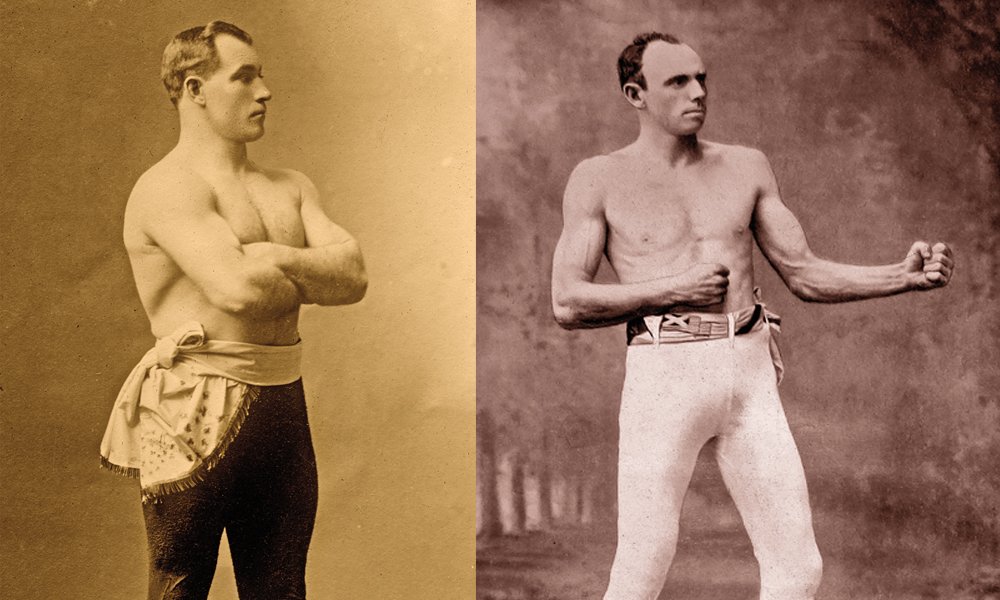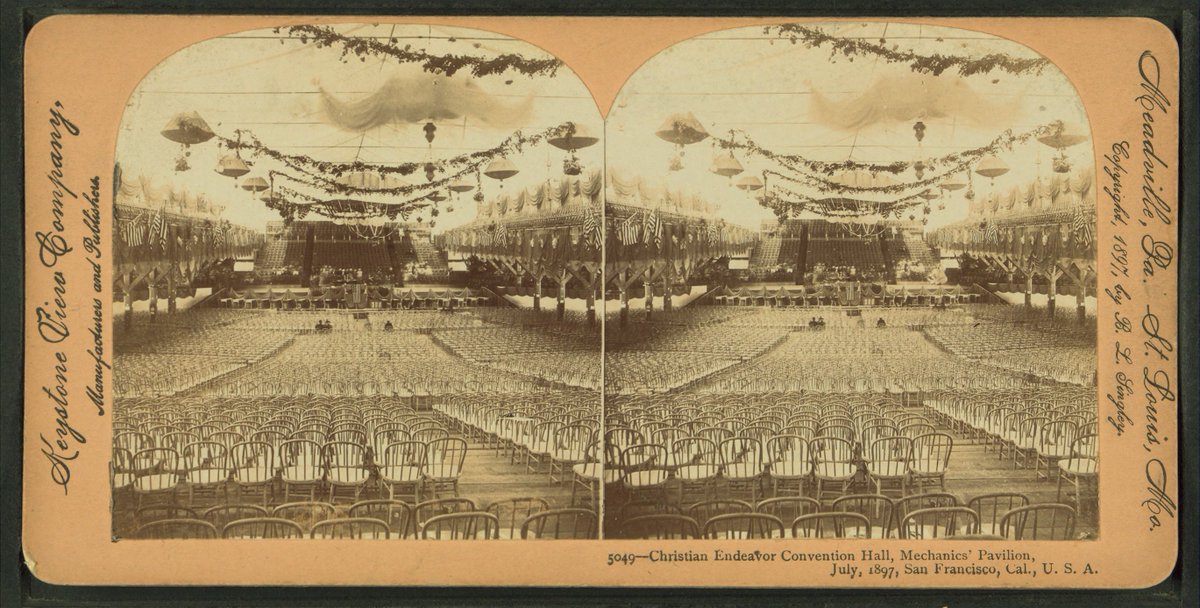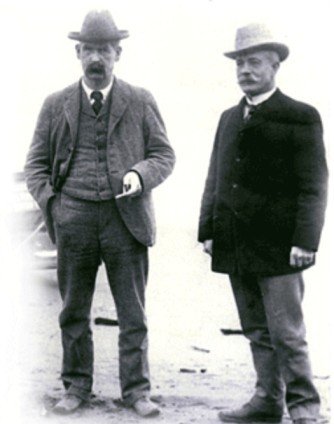
Against my better judgment, I'm going to weigh in on the Sam Elliott/Power of the Dog controversy. I liked Power of the Dog & even though Westerns are my favorite genre, I've never been enamored with Sam Elliott, though I like him well enough. Here goes:
I'm not going to write an exact transcript of what Elliott says, but anyone commenting on it should listen to it themselves instead of relying on articles or tweets that only quote snippets. It starts at 1:04:24: wtfpod.com/podcast/episod…
My breakdown:
•Maron asks Elliot if he's seen Power of the Dog
•Elliott calls it a POS but says Jane Campion is usually a brilliant director
•In addition to disliking the film, Elliott was pissed off by an LA Times blurb that said it was "an evisceration of the American myth"
•Maron asks Elliot if he's seen Power of the Dog
•Elliott calls it a POS but says Jane Campion is usually a brilliant director
•In addition to disliking the film, Elliott was pissed off by an LA Times blurb that said it was "an evisceration of the American myth"
•Elliott criticizes the look of the cowboys, saying they resembled Chippendale dancers constantly running around shirtless & in chaps
•Elliott notes the allusions to homosexuality throughout the film
•Elliott asks what a woman from New Zealand knows about the American West
•Elliott notes the allusions to homosexuality throughout the film
•Elliott asks what a woman from New Zealand knows about the American West
•Elliott asks how a film set in Montana that was shot in New Zealand could claim that "this is the way it was" & that this rubbed him the wrong way
•Elliott notes the myth of macho men cowboys but says they're usually multigenerational families solely dedicating to cowboying
•Elliott notes the myth of macho men cowboys but says they're usually multigenerational families solely dedicating to cowboying
•Maron responds that that shouldn't be the biggest issue, but Elliott says it's the only issue
•Elliott says Benedict Cumberbatch wears chaps everywhere despite almost never being on horseback. He says Cumberbatch walks in the house in chaps & sits on his bed playing the banjo
•Elliott says Benedict Cumberbatch wears chaps everywhere despite almost never being on horseback. He says Cumberbatch walks in the house in chaps & sits on his bed playing the banjo
•Elliott asks "where's the Western in this Western?"
•Maron says it's an art film telling a particular story & that the "evisceration of the American myth" quote is one critic's view of the film & not necessarily the film's intentions
•Elliott says he took it personal
•Maron says it's an art film telling a particular story & that the "evisceration of the American myth" quote is one critic's view of the film & not necessarily the film's intentions
•Elliott says he took it personal
Sorry for the long recap, but I think it's necessary to have it to refer back to since people are cherry-picking from Elliott's poorly worded rant in order to dunk on him.
So, here are my thoughts on Elliott's critiques of POTD and people's critiques of Elliott's critiques...
So, here are my thoughts on Elliott's critiques of POTD and people's critiques of Elliott's critiques...
The biggest mistake Elliott makes is viewing the film through the lens of that stupid "evisceration of the American myth" quote. As someone who loves Westerns, this kind of nonsense pops up all of the time & it's fucking annoying...
People who don't know a goddamn thing about Westerns can't help but trip over themselves with these stupid proclamations about how a particular film deconstructs or demolishes the genre... as if it's some evil thing that needs to be defeated...
They'll often use some trite cliche about black hats & white hats & act like the Western was a homogeneous genre of simplistic morality until Ford/Leone/Peckinpah/Unforgiven came along... as if the only Westerns they've ever seen were Ken Maynard serials or something...
As I've said many times before, if someone talking about the Western genre refers to black hats vs white hats, stop listening to them. Beyond the fact that this is the most trite thing you can say about the Western, it's never even been a thing...
Hopalong Cassidy always wore a black hat. Roy Rogers sometimes wore a black hat. I'd wager almost every heroic Western star wore a black hat at one point. This black hat shit makes as much sense as saying superhero films are about red capes vs blue capes. It's nonsensical...
There's also this obsession with the idea of the Revisionist Western, although no one seems capable of explaining what, exactly, makes a Western Revisionist. Is it moral ambiguity? Gritty authenticity? Sympathy for the Indigenous? Strong female characters?
If so, those things have been part of the genre since the beginning. Western star William S. Hart was obsessed with depicting the West as authentic/realistic as a movie audience could handle without getting bored (though they eventually did)...
He's also notable for almost never playing lawmen, instead opting for bandits & criminals (though he usually changed his ways once he met a nice lady). Hart's Westerns weren't the only ones known for moral ambiguity...
1932's Law & Order ends w/ the hero (a Wyatt Earp stand-in) throwing his badge on the ground in disgust (only 2 decades before High Noon) & that doesn't even compare to its simultaneously absurdist/tragic depiction of an execution via hanging...
As for the portrayal of the West's Indigenous population, every time a Western depicts Natives sympathetically the filmmakers nearly shatter their spines with all their back-patting about what an achievement it is that they didn't cast a bunch of old Italians in red face...
People act like Dances with Wolves was the first Western to portray Natives with any kind of humanity (& to cast actual Natives to play Natives). The Western genre *does* have many egregious portrayals of Natives in its past, but...
It's far more complicated than that. The genre has always vacillated in its depiction of Natives. Sometimes they're frightening savages, sometimes they're broken victims, sometimes they're the coolest, toughest motherfuckers on earth...
The earliest Western literature was heavily indebted to James Fenimore Cooper's Leatherstocking Tales & carried over his portrayal of Natives (which encompassed all 3 aforementioned aspects). Many early Westerns went beyond just sympathizing with Natives, some made them the focus
During the Silent Era, films about Natives were very popular (often focusing on interracial romance) & Indigenous actors/writers/filmmakers were not uncommon. Let's focus on James Young Deer of the Nanticoke tribe & his wife Lillian St. Cyr of the Winnebago tribe...
(I promise I'm getting back to Sam Elliott and Power of the Dog, just bear with me, I'm long-winded)
Because of America's fascination w/ Natives, many silent Westerns focused on them, with studios like Kalem attempting to portray Indigenous people in an accurate, yet entertaining, manner. Young Deer worked as an actor for Kalem, Vitagraph, Biograph & Lubin in the early 1900s...
After French studio Pathé was criticized for their inauthentic Westerns made in Jersey City, they hired Young Deer as a director & in 1910, sent him to LA to make Westerns. Eventually, Young Deer was running Pathé's West Coast Studio operations, working on 150 Westerns for them
Young Deer & St. Cyr are credited w/ creating the most sympathetic & well rounded Natives in film up to that point, often showing their indigenous heroes catching evil whites & tossing them in jail...
Young Deer is a fascinating guy who threatens to derail this already overlong thread, so here's an article about him (he was also part Black & part European, but played up his Native ancestry because film crews likely wouldn't take orders from a black guy)
brightlightsfilm.com/who-was-the-re…
brightlightsfilm.com/who-was-the-re…
Here are some notable silent Westerns that are not only sympathetic to America's indigenous people, they also feature all Native casts: Hiawatha (1913), In the Land of the Headhunters (1914), The Daughter of Dawn (1914), Vanishing Race (1917) & Before the White Man Came (1920)...
Which is not to say that these films don't have big problems or that the Western genre is absolved of its many horrible depictions of Natives... just that attempts at portraying Natives in a well-rounded, sympathetic & authentic manner is hardly "revisionist" or recent...
As for strong female characters, well, that's been a staple of the Western genre for so long that it predates Western movies entirely. The 1st Cowboy novel (outside of dime novels) was 1889's The Administratrix by Emma Ghent Curtis...
The Administratrix follows Mary, a school teacher who falls in love w/ a cowboy who is an advocate for women's suffrage. After her lover is killed, Mary crossdresses as a cowboy in order to get her revenge...
If this 1889 novel was adapted into a film today, it would no doubt be heralded as a revisionist Western that deconstructs the very genre it had an integral role in creating. This kind of thing wasn't only limited to Western literature either...
The 1st "Billy the Kid" film was 1911's short of the same name. It stars Edith Storey as Billy, a girl raised as a boy (& cowboy) until outlaws discover her secret. Storey was known for playing males (I've attached a few stills). Unfortunately, Billy the Kid is considered lost... 

Obviously there are many other similar examples in the genre, I'm just showing that the things people associate with "revisionist Westerns" were already there at the inception of the Western genre...
When certain Westerns get touted as groundbreaking, or as refutations of the genre's values, or as "eviscerations" of the genre itself, those who love the genre & know its history are bound to get annoyed. I think that's where Elliott is coming from. Let's (finally) get into that
Since the Western is so often misrepresented by those who should know better (film critics), people like me (& Sam Elliott, apparently) get a bit defensive of it. I laugh at Marvel fanboys, but I know if some alternate reality Scorsese shit on Westerns I'd be calling for blood...
So I think Maron is right when he tells Elliott that the stupid evisceration blurb should be separated from the film itself. If Power of the Dog is an attempt at eviscerating the genre, or the American myth, or whatever, it's an abject failure...
Also, Elliott does himself no favors when he asks what "this woman from New Zealand" knows about the American West. Intended or not, it smacks of misogyny & I have no interest in defending that aspect of his comments. Instead, let's look at his other complaints...
Elliott's first complaint is that the cowboys all looked like Chippendale dancers, walking around everywhere shirtless & in chaps. I saw the film a long time ago, so I don't remember all of these chaps/no shirts scenes, but I remember thinking the cowboys looked pretty silly...
Speaking of chaps, Elliott mentions Cumberbatch entering the house, stomping up the stairs, laying in bed & playing his banjo, all while wearing his chaps, which almost sounds like a non-sequitur of a complaint... but I actually understand where he's coming from...
Elliott mentions that we hardly ever see Cumberbatch on a horse. I saw the film way back in September, so I don't remember if that's actually true, but I can't personally recall any scenes of Cumberbatch on a horse...
I think Elliott's point is that chaps have a particular purpose (protecting one's legs when riding through brush/thorns etc). They can be cumbersome, hot & uncomfortable. They are not a fashion accessory (though POTD is hardly the first Western to treat them as such)...
So I understand Elliott watching this "deconstruction of the Western" & finding it ridiculous. These filmmakers are supposed to topple the genre & they don't know simple things like the purpose of chaps? They're going to eviscerate the American myth all the way from New Zealand?
Let me get into my experience with POTD because it has some overlap w/ Elliott's critiques, but is different overall. When I watched POTD in Sept, all I knew about it was that it was a Jane Campion Western filmed in New Zealand & starring Benedict Cumberbatch...
I didn't know there was a homosexual element to it going in. From the outset, I thought the cowboys looked like male models & dressed ridiculously. I thought Benedict Cumberbatch was, perhaps, the least convincing tough guy cowboy I had ever seen on film...
As it went on, I started to think that these cowboys seemed pretty gay but wasn't certain until Cumberbatch's mud bath scene (yes, I am very dense). Once it became clear that Cumberbatch was an educated, self-hating homosexual overcompensating through aggression, it clicked...
Suddenly, all of the homoerotic visuals made sense. Even Cumberbatch stomping up to his room still in his chaps made sense (I believe he even mentions how he loves to always wear his dirty cowboy clothes)...
Some have tried to counteract Elliott's complaints about inauthenticity by citing the novel the film adapts & how Thomas Savage, the author, *did* know the American West. I'm not an expert on Savage & haven't read the book, but I think Elliott & his critics miss the point here...
Elliott's complaints are about visual choices that he finds inauthentic (be it wearing chaps in bed or subbing NZ for Montana). Unless Savage's book describes the cowboys going everywhere in shirtless/chaps combos, then his novel's authenticity doesn't address Elliott's critiques
What I enjoyed about Power of the Dog was the way that Campion told her story through visuals. So much so, that even a dunce like me picked up on it after awhile. She walks a tightrope, & sometimes falters, but I find that interesting...
She's able to communicate Cumberbatch's repressed homosexuality without him outright stating it, or showing him kissing a fella on the lips or whatever. Sometimes it's silly or overdone, but I still respect the attempt...
The same goes for the casting of Cumberbatch. Once I realized who his character was, I better appreciated his casting, at least on an intellectual level. I still think it doesn't quite work...
I never believed him as a cowboy, even if he's a deluded man who's just playing cowboy. It comes off as stunt casting... but I appreciate the big swing nonetheless. But that's why I'm sympathetic to Elliott's complaints...
I went in knowing nothing about it & had to put things together mostly from Campion's visual storytelling. It sounds to me like Elliott went in knowing that POTD was a "gay Western" so all the shirtless hunks in chaps, wrasslin' & nude bathing probably felt like overkill...
I know I'm giving Elliott a big benefit of the doubt here, but I didn't read his comments as disliking POTD for being a "gay Western", just that he felt the believability of the Western elements didn't need to be "compromised" in order to depict a gay cowboy...
When you couple that with him viewing it as an attempt to eviscerate the genre, then I can understand his dislike. I don't agree with him. I liked the film. I didn't view it as an attack or critique of Westerns, but I get it. I also get why his comments offended so many people
Anyway, that's my long-winded response to Elliott's comments. I'll probably use the rest of this space to comment on some of the comments about his comments, but I don't blame anyone for bailing now (or about 100 tweets ago)...
About the comments on his comments: one thing people have latched onto is Elliott asking what a New Zealander knows about the American West. As a counter, they bring up many great Western directors who weren't from the American West...
Some have brought up directors born on the East Coast like John Ford or Raoul Walsh, but they came to the West when much of the Wild West still existed & there were plenty of people who they knew (like Wyatt Earp) who experienced it 1st hand...
That's not to say that their films are particularly authentic (though Walsh's The Big Trail gets pretty close) but it's safe to say they knew something about the West & they used that knowledge to create their own myths from it. They aren't great counters to Elliott's comment...
Others have brought up Sergio Leone. I have no idea about Elliott's views on Leone's Westerns, but I don't think Leone knew much of anything about the actual West. Most of his research went into the visual details... which still aren't correct, though they are cool as hell...
Leone knew about Westerns, not the West (like most filmmakers, American or not). I love Leone's work, but I don't begrudge people for finding his depiction of the Old West ludicrous & off-putting (as many Western purists do). He's not a good counter to Elliott's NZ comment...
Others have mentioned the directors of Westerns Elliott himself has appeared in. For example, Tombstone, probably his most well known Western, was directed by George P. Cosmatos, an Italian...
The problem with this example is that Elliott signed on when it was to be directed by Kevin Jarre, the screenwriter. Jarre was born in Michigan but lived much of his life in Wyoming & *did* actually know a lot about the Old West...
Jarre is responsible for insisting that the costumes, props, guns, saddles, locations & dialogue were the most period authentic since the 1930s. After Jarre was fired & his script was cut up, Elliott went on record saying he wouldn't have signed on had he known that would happen
Plus Kurt Russell claims he actually directed Tombstone after Jarre's firing & just gave Cosmatos credit. Anyway, not a great example to counter Elliott's comment...
The best counter to Elliott asking what a woman from New Zealand knows about the Old West is simply asking what an actor-turned-writer from Texas knows about the Old West...
Elliott stars in Taylor Sheridan's wagon train Western show 1883, which takes place in... 1883. In it, a group of immigrants hires Elliott's tough frontiersman character to lead them in a wagon train from Texas to Montana. From a historical perspective, this makes no sense...
Cross country wagon trains had died out decades before 1883. At one point, Elliott's character tells the immigrants to sell their oxen & buy horses. Not only does this make no sense for a wagon train, if they had money to buy horses then they should've just bought train tickets!
The show's entire concept is absurd from a historical perspective. Much more absurd than wearing chaps in the house.
So Mr. Elliott, what does this man from Texas know about the American West?
So Mr. Elliott, what does this man from Texas know about the American West?
My point is that the Western is a big enough genre for all kinds of people to tell stories. I don't begrudge Elliott for disliking POTD or taking it the wrong way. He certainly could have clarified himself better, though I must admit that I found parts of his rant pretty funny...
I'm down for as many variations within the genre as possible. Gay Westerns, Spaghetti Westerns, Musical Westerns, Black Westerns, Comedy Westerns, Cavalry Westerns, Indigenous Westerns, Romance Westerns, Historical Westerns, whatever. Not big on SciFi/Supernatural Westerns though
One of the reasons I've never been a huge Sam Elliott fan is that I usually don't like the brand of Westerns he's in. It's hard to explain but they're often these mediocre boomer Westerns that co-star Tom Selleck or are Selleck-adjacent...
They're often Louis L'Amour TV adaptations that have the moral complexity of those Ken Maynard serials I mentioned. I don't think he's ever been in a truly great Western, and yes, I'm including Tombstone in the Not Great Pile.
But my biggest problem with Sam Elliott's Westerns?
But my biggest problem with Sam Elliott's Westerns?
• • •
Missing some Tweet in this thread? You can try to
force a refresh
















